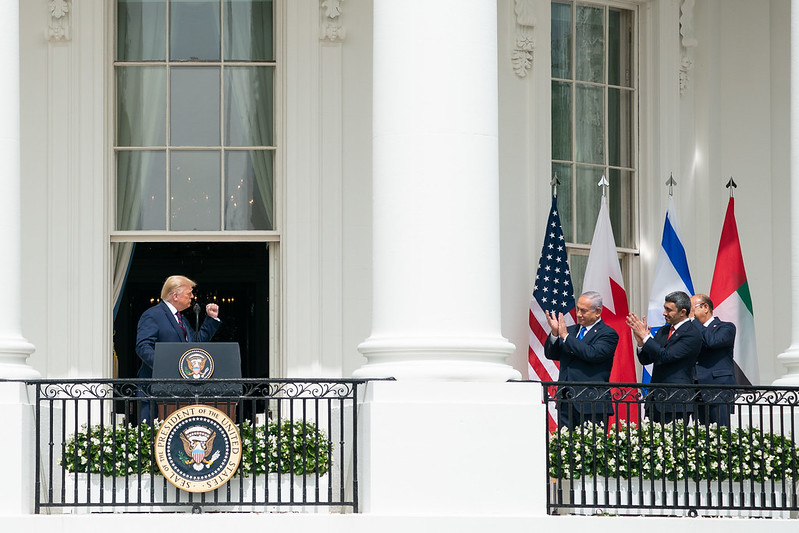US President Donald Trump has generally pursued a foreign policy full of inconsistencies and contradictions, but that doesn’t apply to his approach to the Middle East. He has consistently targeted Iran as a menace and forged an anti-Iranian Arab–Israeli alliance to counter Tehran and its allies. Will his strategy pay off?
Trump has thrived on a ‘divide and rule’ policy at home and abroad. He is the first American leader to score well in enticing some of the Gulf Arab kingdoms to join hands with Israel to confront ‘the Iranian threat’. Hence his brokering of normalisation-of-relations agreements between Israel and the United Arab Emirates and Bahrain.
Trump wants Tehran to renegotiate the landmark 2015 Iran nuclear agreement, the Joint Comprehensive Plan of Action, from which he withdrew the US in 2018, and to retrench its military capability and regional influence according to American interests.
He has subjected Tehran to a policy of ‘maximum pressure’ to make it buckle under the weight of increased US sanctions at a time when Iran has also been hit hard by Covid-19. As Tehran has remained defiant, he has racked up pressure by seeking to use the JCPOA’s ‘snapback’ clause to restore all the pre-JCPOA United Nations sanctions against Iran, despite the US not being a party to the agreement anymore.
While lambasting Tehran for shirking some of its commitments to the agreement in response to his actions, he has ignored Iran’s legal right to do so under the same ‘snapback’ clause as long as it remains a party to the agreement. Not surprisingly, the other signatories to the JCPOA, Britain, France, Germany, Russia and China, say any attempt by Trump to reimpose the UN sanctions is ‘illegal’ and have confirmed once again their support for preserving the agreement as an important measure for regional stability and international security.
Read the article by Amin Saikal in The Strategist.

